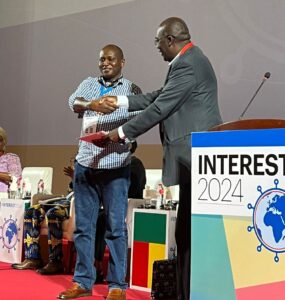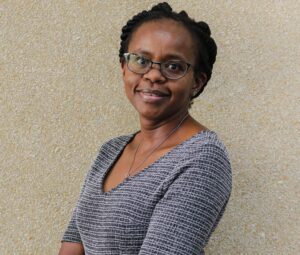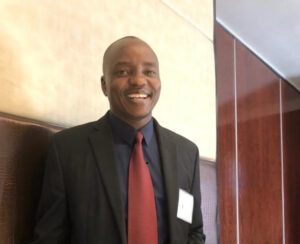To commemorate International Women’s Day which is marked annually on March 8, CARTA Communication Assistant, Topistar Karani caught up with Boladale Mapayi (CARTA cohort 4 graduate) and they chatted about her recent promotion that saw her become the first female Professor of Psychiatry at Obafemi Awolowo University, Nigeria. Here is what she had to say.
Tell us about yourself and your research interests
I am a behavioral scientist with extensive experience in the study of the dynamics of human behavior and interpersonal violence. I practice as a Consultant Psychiatrist and Clinical Psychologist at Obafemi Awolowo University (OAU) and OAU Teaching Hospitals Complex, Ile-Ife, Nigeria. Beyond my practice, I consider myself a distinguished researcher and I am extremely passionate about women’s and adolescent mental health, gender-based violence, and sexuality issues. Over the years, I have participated in several agenda‐setting initiatives concerning gender, sexual minorities, sexual violence, adolescents, and young people as well as the development and reviews of multiple national and international technical reports. I have over 50 publications in peer-reviewed journals, and I have won and executed several research grants and collaborated with colleagues within and across institutions and countries to provide pertinent data to foster health and wellness.
Recently, you were appointed the first female Professor of Psychiatry at OAU. What does this milestone mean to you?
Although I am the first female Professor of Psychiatry in my institution, I join a list of many other female professors in the institution from different disciplines. Personally and professionally, I am elated and proud of this milestone! I am grateful to the many great mentors in my institution and in my department who have inspired me along my journey. While a lot has been done to forge the success path for myself and other women in academia and top positions overall, I strongly feel that there is still a long way to go in ensuring gender parity, especially in the top positions. We have made giant strides in creating some balance for women but we should not rest on our oars.
For me, this milestone means that the hard work, sleepless nights, and numerous tradeoffs were all worth it. The constant nagging of concerned friends and family members on the dangers of advancing in my career at the possible detriment to my home. It means that I can be a role model to my children so that they can be the best at what they want without missing out because they are female. If I can do it, so can anyone. It also means that I can keep more doors open for the people coming after me and I am super excited about that.
What advice can you give to women in “male-dominated” spaces?
Keep pushing and never give up! There will be tough days, the days when you curl up and cry, when it is just easy to give in and give up, throw in the towel. But if you keep pushing, you will get beyond that point. Do not let anyone make you small or keep you quiet. Ensure that your voice is heard, keep working hard and do find your tribe, your support gang, the people that will connect you to the right mentors. Remember, a tree does not make a forest.
You are passionate about women, gender, and sexuality issues. Are there initiatives you are currently involved in professionally or otherwise along these lines?
I am currently a gender specialist in my institution and a technical adviser/consultant and trainer to several development partners including WHO, Federal Ministry of Health and National Agency for the Control of AIDS on gender-based violence issues. I also volunteer with several CSOs that cater to the needs of survivors of GBV. My interest in women, gender, and sexuality issues stems from the harm that I encounter daily, experienced by some sections of our population because of unfair socially assigned roles that are based on unequal power relations. Intolerance fosters stigma and discrimination which further hampers access to support and worsens health outcomes. There are simple steps that we can take towards inclusivity, equity, fairness, and justice that will improve lives. It starts with raising awareness through community engagement in research.
What do you hope to achieve in your current position in line with this year’s theme of the International Women’s Day #EmbraceEquity?
I hope to use my leadership position as the Head of Department in my institution and the affiliated teaching hospital to model embracing equity with policies that will improve access and agency for all colleagues and coworkers regardless of their different demographic and social characteristics.





No Comments